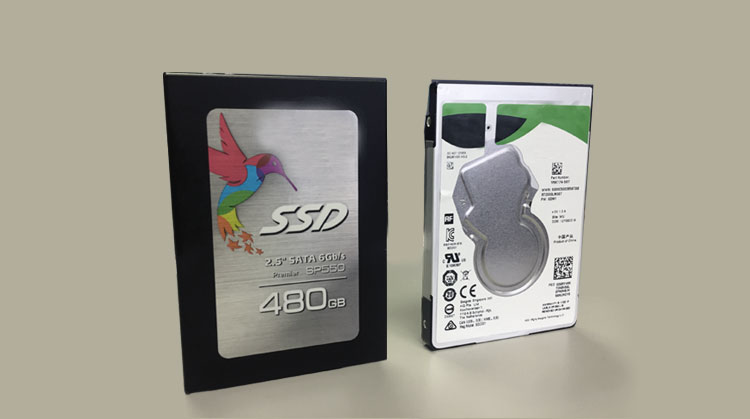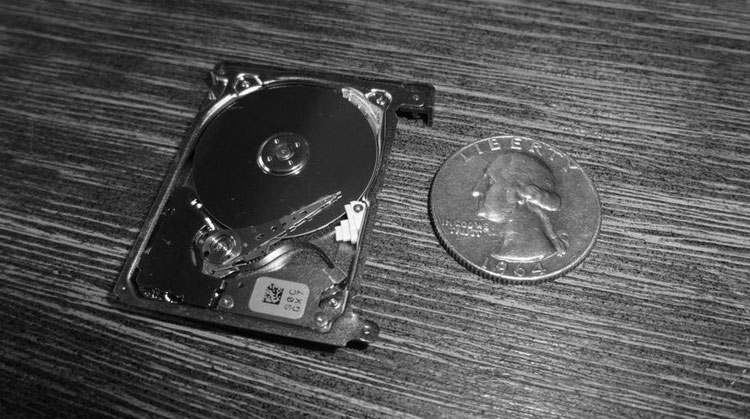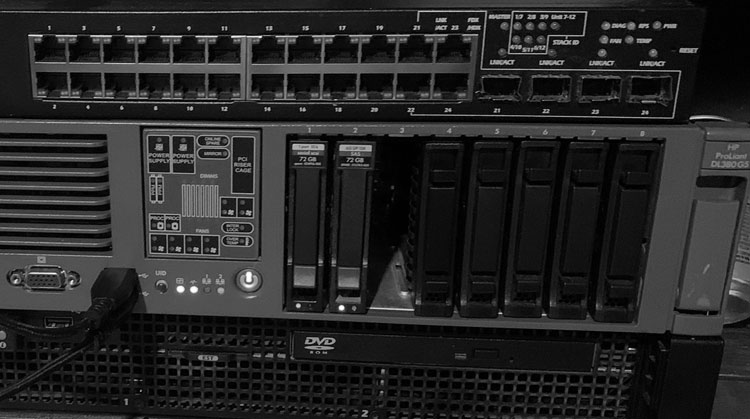
There’s a question worth pondering for a moment or two. With the constant spinning forward of new technology, it stands to reason to wonder if SSDs will either completely replace HDDs or will there be something new in the future we don’t already know about. Let’s take a closer look.
The Capacity and Size
HDDs can grow. They grow in both size and capacity. If you were to compare zip drives and CDs and any other outdated technology you can’t really make it fit anything bigger than it already is. Sure, you may get away with squishing in a sliver more but when we start talking about terabytes (TBs) that is where all the possibilities come to a screeching halt.

With HDDs, at the moment anyway, we are at the 16TB mark and this is just the beginning. Also, Seagate found a way to stuff a whole 1TB of data into the space of one square inch. With that in mind, how much data do you think they will be able to jam into a regular 3.5-inch drive? Whatever I guess right now is probably going to be wrong but one thing is for sure, it will be a whole lot of data.
Money
This happens to be the main reason why HDDs will never stop being produced. People purchase them frequently where SSDs are not as expensive. Seagate and Western Digital will not be losing out on all the revenue they will be able to earn daily through the sale of HDDs. Plus, the corporate world will make sure of it and so far have managed to make sure to stretch the new technology as far as possible while making as much revenue as possible. Hey, it’s the way of the world we live in – money still makes the decisions.
SSD Cell Degradation
This should not be a shock to you. Eventually, SSDs become read-only. Until the technology can be developed to bypass this little inconvenience, SSDs will stay behind.
Server Application and Data Recovery
Most current server applications are reliable on HDDs. That is mostly because HDDs have a higher success rate when you are measuring data recovery. SSDs – well, not so much. With high-speed drives that still do not perform as fast as SSDs, the big giants and major corporations still rely on regular SCSI, SAS or fiber channel high-speed hard drives. The funny thing is, SSD technology has been available for decades. In fact, the first SSD drive came out in 1976 known as the Bulk Core. Ever since that time, HDDs have been the favorite of choice for many corporations.

Boosting Cache For HDDs
The concept of boosting an HDD with some type of cache drive happens to be anything but a new idea. In fact, Intel has taken that very technology to a whole new level with Optane. It is truly a fantastic idea and Intel has launched it but I strongly suspect that AMD and all the other manufacturers will follow that lead with their own version.
What’s Next?
I don’t have a crystal ball and I can’t time travel but if I had access to either I would not be all that surprised if new technology in the not too far distant future developed something that replaced HDDs with something far more amazing. I’m thinking about data storage that would enter the petabyte or zettabyte territory. By the way, I’m not making those up. For size comparisons:
1TB = 1,024GB
1PB = 1,024TB
1ZB = 1-Billion TB
I know, it sounds rather impossible but at one point no one believed the guys who were talking about networking computers into a worldwide web for information sharing. That idea became what we now know as the internet so I think it is possible that HDDs will reach a maximum size and will give way to some other gadget that can hold even more.
Remember me pointing out that Seagate can store 1TB of data into a single square inch?
In Conclusion
Well, I’ve pretty much said it already. HDDs are going to be around for a very long time. Unless, as I’ve indicated, some mind-blowing form of technology steps into the light and renders HDDs into the territory reserved for the old, outdated and replaced tech. So until that day occurs, rest easy knowing that your HDD data is safe and sound.
